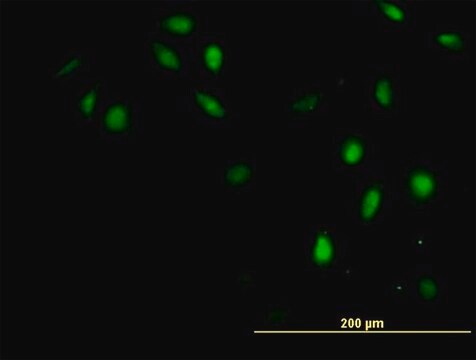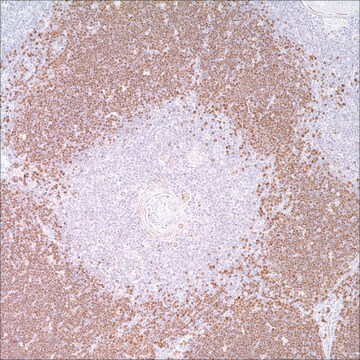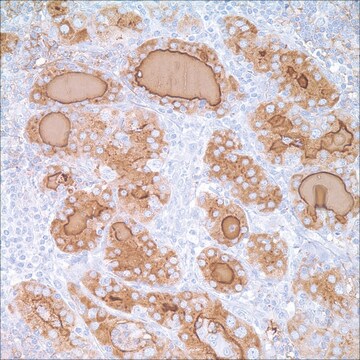AV32598
Anti-GTF2H4 antibody produced in rabbit
affinity isolated antibody
Synonym(s):
Anti-General transcription factor IIH, polypeptide 4, 52 kDa, Anti-TFIIH
About This Item
Recommended Products
biological source
rabbit
Quality Level
conjugate
unconjugated
antibody form
affinity isolated antibody
antibody product type
primary antibodies
clone
polyclonal
form
buffered aqueous solution
mol wt
52 kDa
species reactivity
human, mouse, guinea pig, dog, rat
concentration
0.5 mg - 1 mg/mL
technique(s)
western blot: suitable
NCBI accession no.
UniProt accession no.
shipped in
wet ice
storage temp.
−20°C
target post-translational modification
unmodified
Gene Information
human ... GTF2H4(2968)
General description
Rabbit Anti-GTF2H4 antibody recognizes human, mouse, rat, bovine, and pig GTF2H4.
Immunogen
Application
Biochem/physiol Actions
Sequence
Physical form
Disclaimer
Not finding the right product?
Try our Product Selector Tool.
Storage Class
10 - Combustible liquids
wgk_germany
WGK 3
flash_point_f
Not applicable
flash_point_c
Not applicable
Choose from one of the most recent versions:
Certificates of Analysis (COA)
Don't see the Right Version?
If you require a particular version, you can look up a specific certificate by the Lot or Batch number.
Already Own This Product?
Find documentation for the products that you have recently purchased in the Document Library.
Our team of scientists has experience in all areas of research including Life Science, Material Science, Chemical Synthesis, Chromatography, Analytical and many others.
Contact Technical Service





